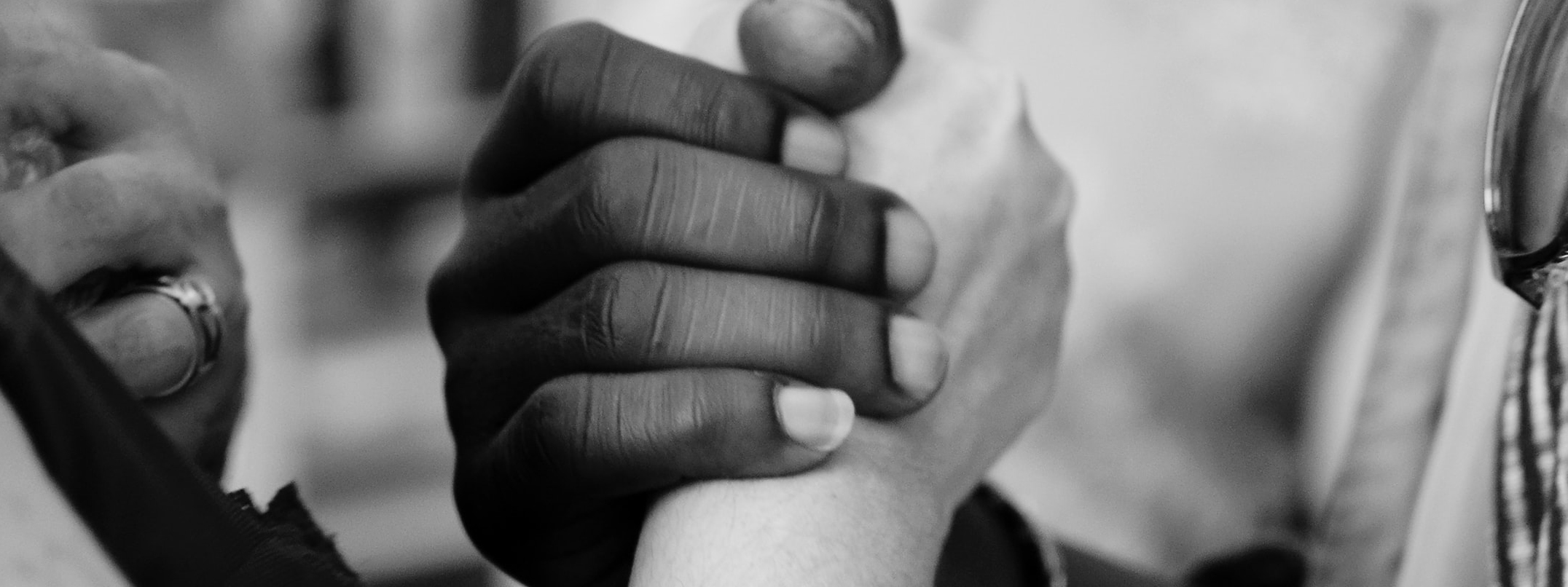
By Rev. Stephen D. Bryant, former publisher of The Upper Room
What is The Upper Room’s perspective on racism? This is a question that we’ve been asked in response to our posting of resources related to recent racial unrest.
The Upper Room’s stance since our beginning 85 years ago is unchanged and consistent with the worldwide consensus of the church ecumenical (as reflected in statements from a variety of communions and in the historic creeds linked below) that racism is sin, an obstacle to grace that works against the reign of God in society, in our relationships, and in our formation as human beings made in God’s image designed to grow in the love and likeness of Jesus Christ.
Ethically, racist attitudes and actions violate the most universally accepted principle of law and human relationships for Christians and non-Christians alike: the “golden rule” (Mt. 7:12) and its application to both personal practice and social policy. Spiritually, racism is rooted in an inordinate attachment and loyalty to our racial identity over and against (or in ignorance of) our true identity in God. Overcoming racism from the inside out involves the glorious discovery of who we truly are beneath the surface of our remarkable diversity—children of God. It requires the daily practice of the spiritual awareness that we belong to God, we are family, and we are “our brother’s keeper” (Gen. 4:9).
As we see it, the issue of racism or racialism was settled long ago on the cross of Christ and on the Day of Pentecost. In the upper room in Jerusalem, on the night before he was betrayed, Jesus offered his body and blood for the forgiveness of sins and the restoration of the whole human family. In fact, we are reminded whenever we gather for prayer and worship before the carving of the last supper in The Upper Room Chapel that Christ gave his life for all, that God’s blessing is not for some but for everyone.
Fifty days later, while praying as one in that same “room upstairs” (Acts 1:13. 2:1), Jesus’s followers were filled with the Holy Spirit and began to proclaim the gospel in languages of people from all nations and races. God’s Spirit overcame the differences by which people have long divided up the world and prioritized races and gave birth to a new kind of community, international and interracial in character. Through Jesus Christ and the Holy Spirit, God gave humanity a new beginning, a glimpse of the world to come, and a foretaste of the world God wills where “there is no longer Jew or Greek, there is no longer slave or free, there is no longer male and female; for all of you are one in Christ Jesus” (Gal. 3:28).
Therefore, racism is an obstacle to the realization of God’s will in the world and to the work of God’s grace in our lives and relationships. And yet we do not lose heart. The ministry of The Upper Room is inspired daily by our prayerful observation that God’s love is new every morning, always working for good in the world, and that when we open our hearts through prayer and scripture, we discover again and again that the Lord is with us already, stirring up in us a desire to live peacefully with God and neighbor and all of creation. Yes, in the light of God’s love, we also discover sin in ourselves—attitudes, patterns of living, and ways of participating in the world that shut God out, that stand in God’s way, and that blind us to the image of God in the people with whom we share life in this world. But we believe that God is with us to deliver us from the power of sin, free us for the practice of Christ’s love, to heal us of our heartlessness, and to reform our life together in this world. This is the dynamic process of spiritual formation that we—The Upper Room—are here to support and resource.
The United Methodist Church social principals and statement from the Bishops
Presbyterian Church (USA) statement on Racism Truth and Reconciliation
Episcopal House of Bishops Pastoral Letter on the Sin of Racism
Evangelical Lutheran Church in America commitment to combat racism and white supremacy
Southern Baptist Resolution on Racial And Ethnic Reconciliation
Share on Socials